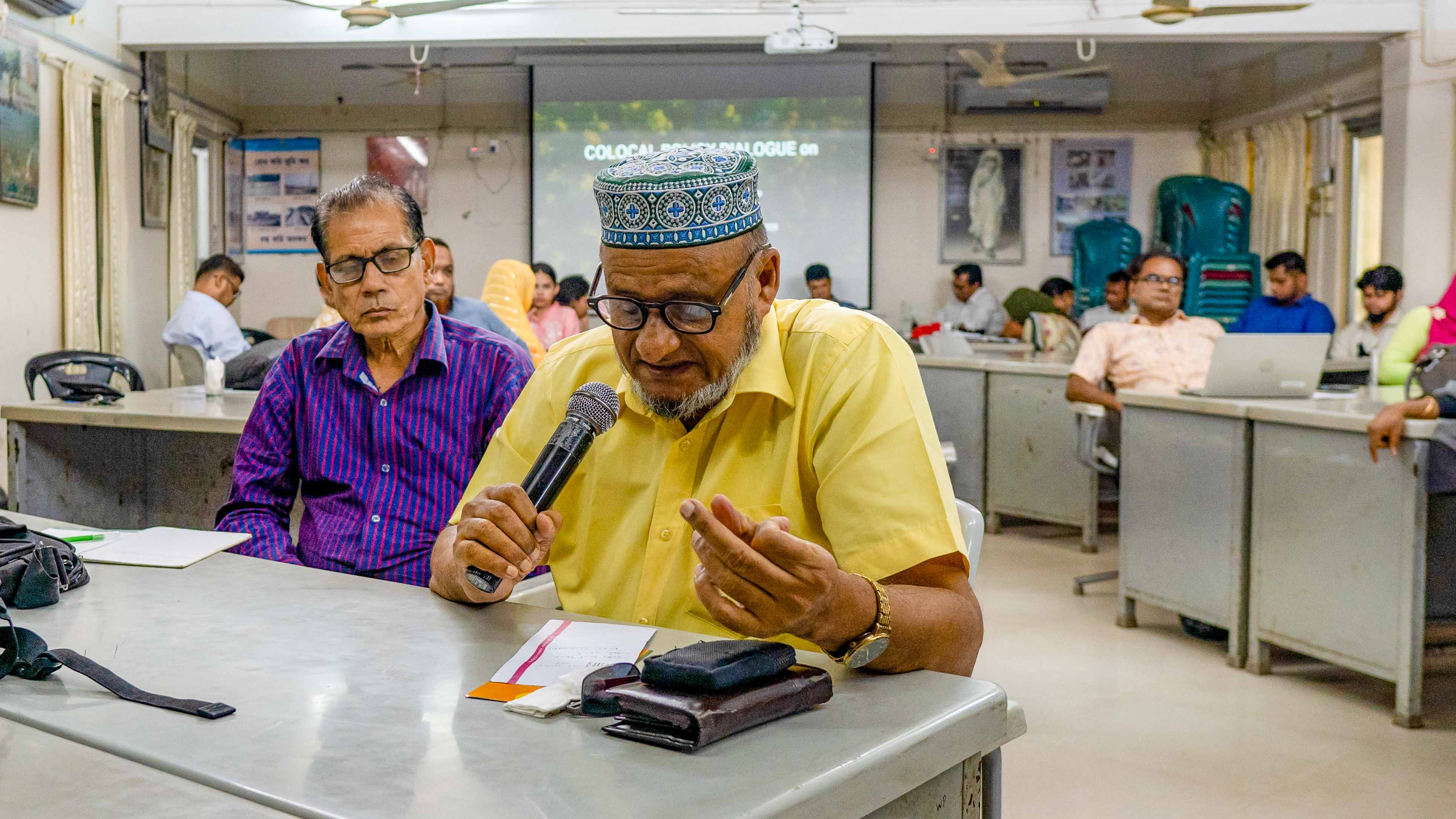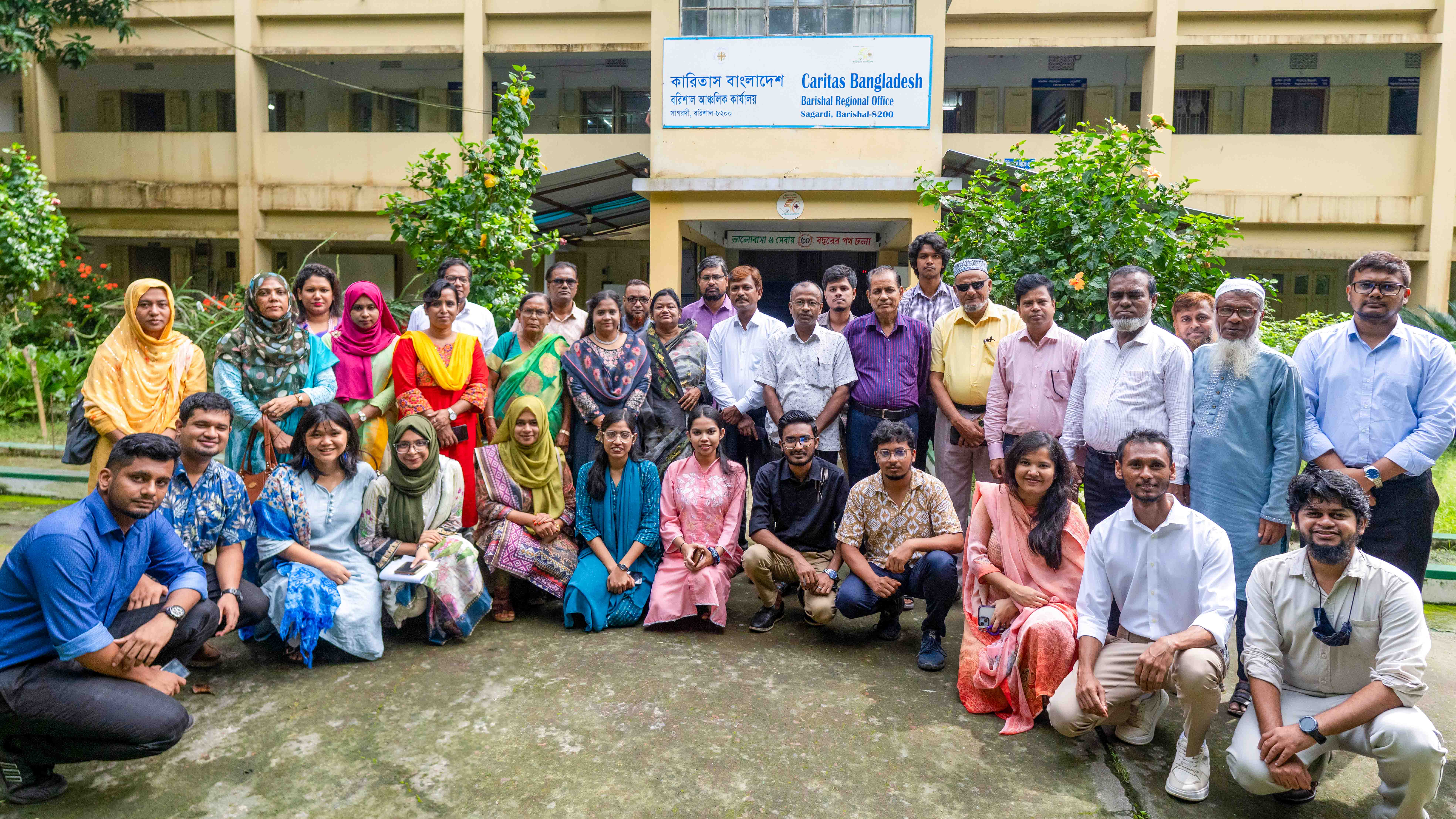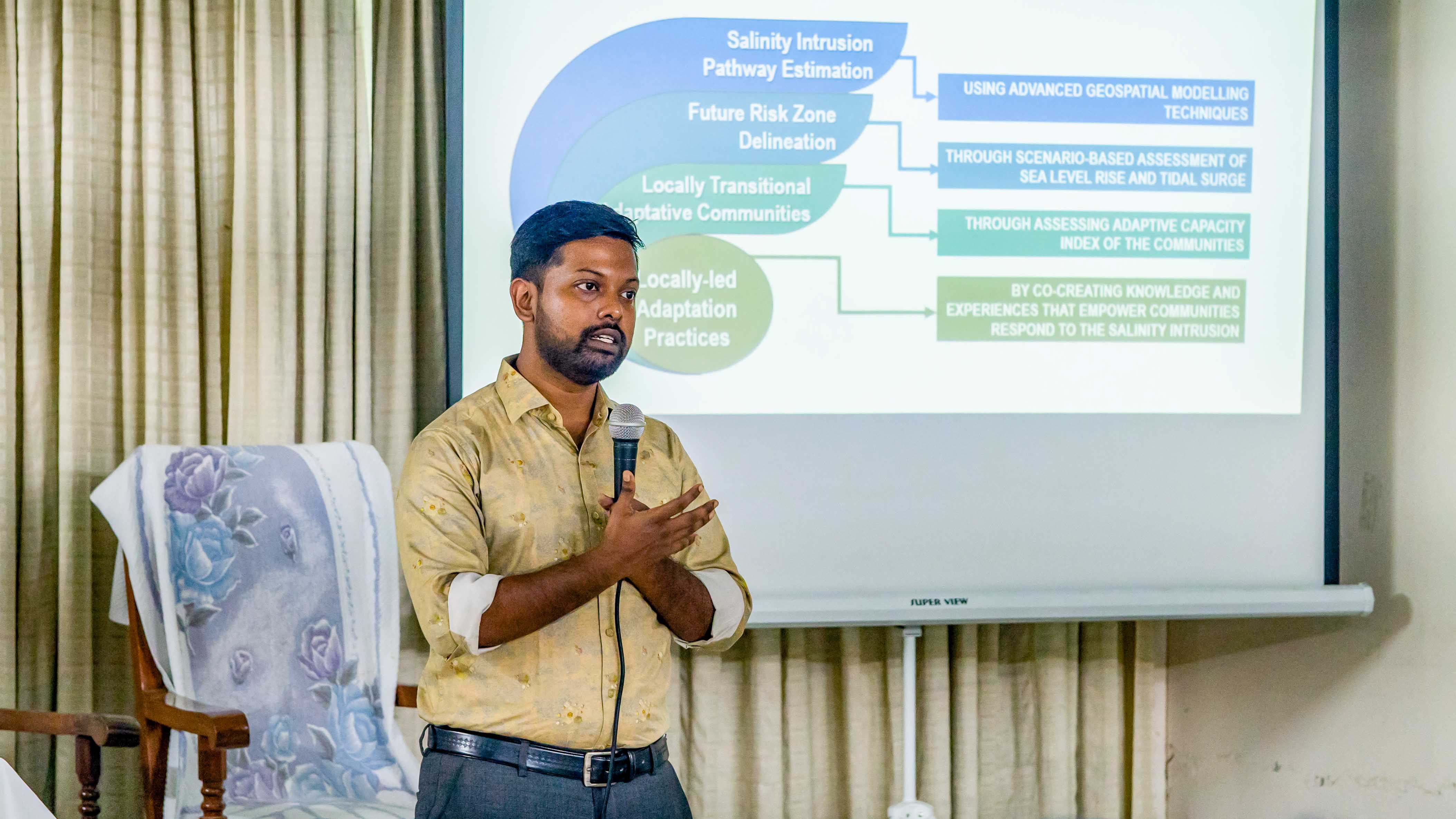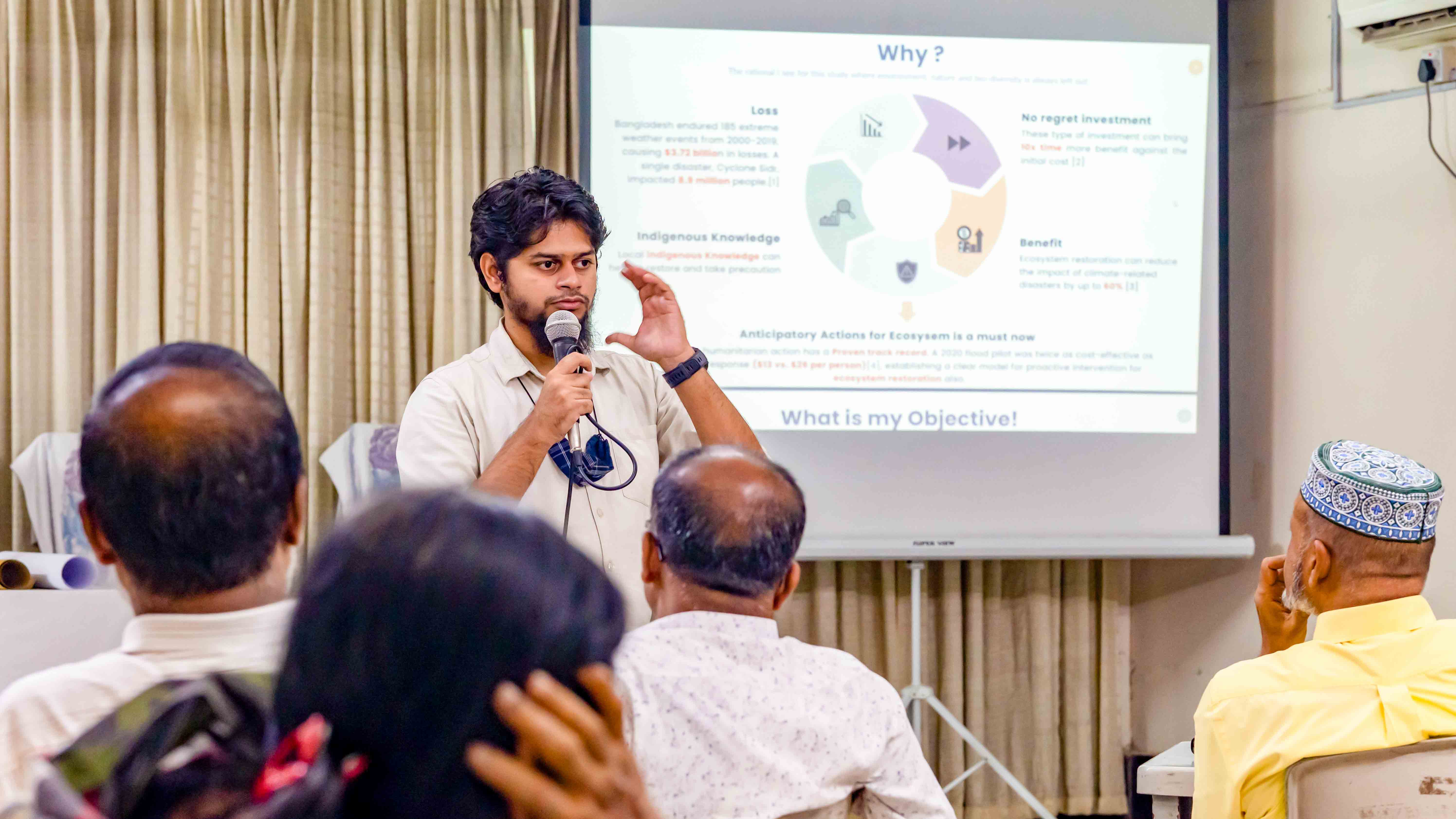COLOCAL Project hosts policy dialogue on locally led adaption in Barishal
Published : 29 July 2025
The COLOCAL Project under the Department of Environmental Science and Management of Independent University, Bangladesh (IUB) organised a policy dialogue on July 27, 2025, at the CARITAS Regional Office in Barishal. At the same event, the International Centre for Climate Change and Development (ICCCAD) of IUB launched the Locally Led Adaptation (LLA) Divisional Platform for the Barishal region under its LLA Programme.
Local government and NGO representatives, academicians, youth leaders, and community members participated in the dialogue. Ragib Mahmood Shuvo and Syed Irfan Uddin – both M.Sc. in Climate Change and Development students at IUB and COLOCAL Fellows – presented their research proposals. Fahmid Mohtasin, Project Officer for COLOCAL, facilitated the event.
One of the key objectives of the dialogue was to give the student researchers the opportunity to receive expert feedback to refine their research design. The dialogue also inspired discussions and debates among experts, including Mostafa Nuruzzaman, Chief Executive of non-governmental organization Shushilan, and several faculty members from the University of Barishal and the Patuakhali Institute of Science and Technology.
Ragib Mahmood Shuvo’s proposal addressed groundwater salinity intrusion in coastal Bangladesh. The study will use geospatial modelling to map salinity pathways, future risk scenario analysis for climate projections, and community-based assessments to evaluate adaptive capacity. Following his presentation, stakeholders highlighted preventative groundwater protection and technology-driven solutions that are locally supported. Based on feedback, the research methodology was modified to also measure technological knowledge and experience in evaluating current adaptive measures.
Syed Irfan Uddin’s presentation focused on cyclone impacts on ecosystems and anticipatory community actions to reduce damage and restore essential ecosystem services. The research applies a mixed-methodology approach, combining Machine Learning models with a community survey to identify vulnerable ecosystems based on community reliance. Experts recommended making the research more easily communicable for the layperson and provided feedback on integrating assessment tools for locally led adaptation strategies.
The COLOCAL project – short for “Co-creating Knowledge for Locally-Led Adaptation to Climate Change” – is a capacity-building initiative aimed at strengthening universities in the Global South, particularly in least developed countries, to deliver education and research that support LLA efforts. Funded by the Norwegian Agency for Development Cooperation (Norad) under the NORHED II program, the project runs from January 2021 to January 2027.
#SDG4 #SDG6 #SDG11 #SDG13 #SDG14 #SDG15 #SDG17



